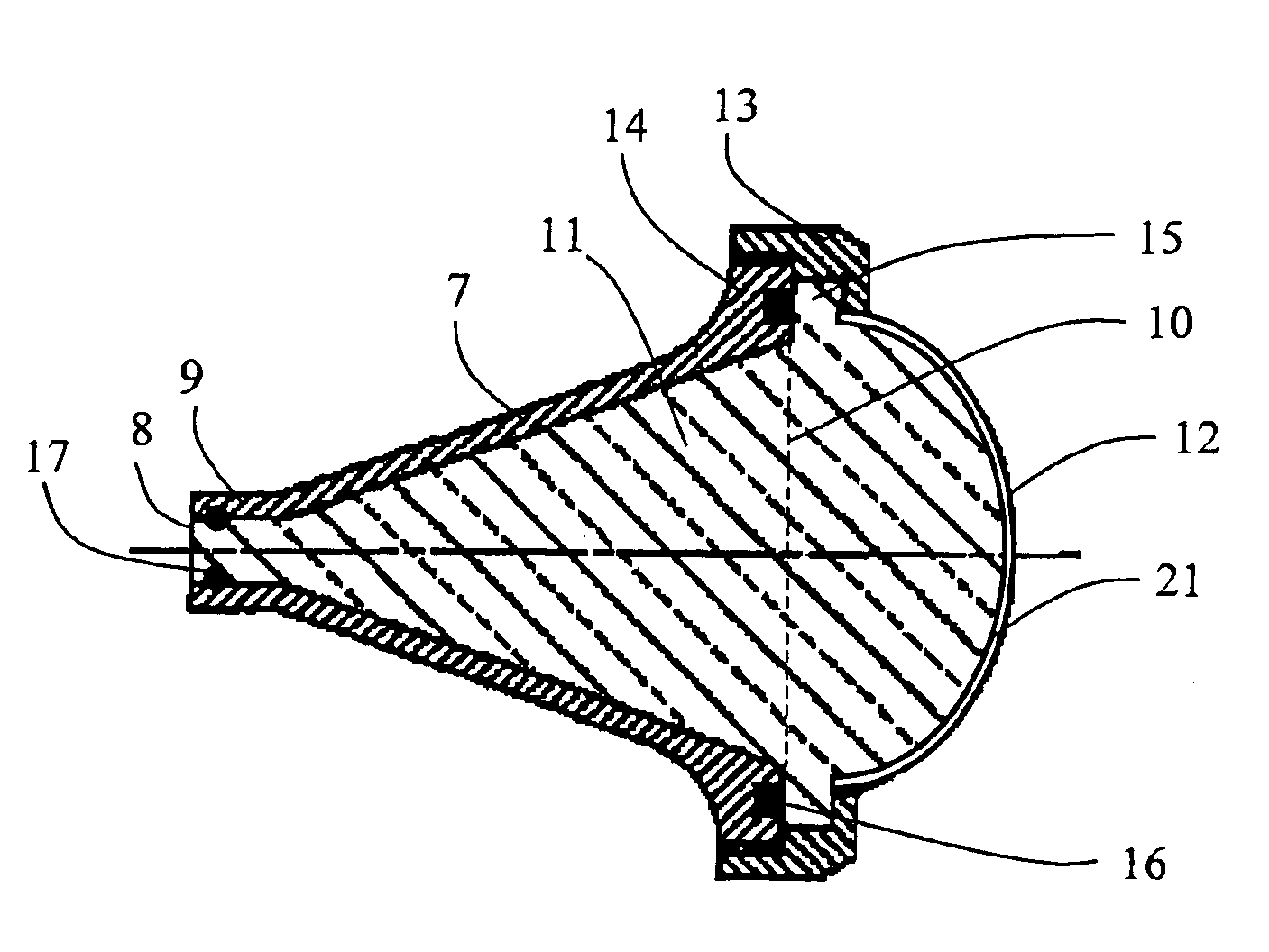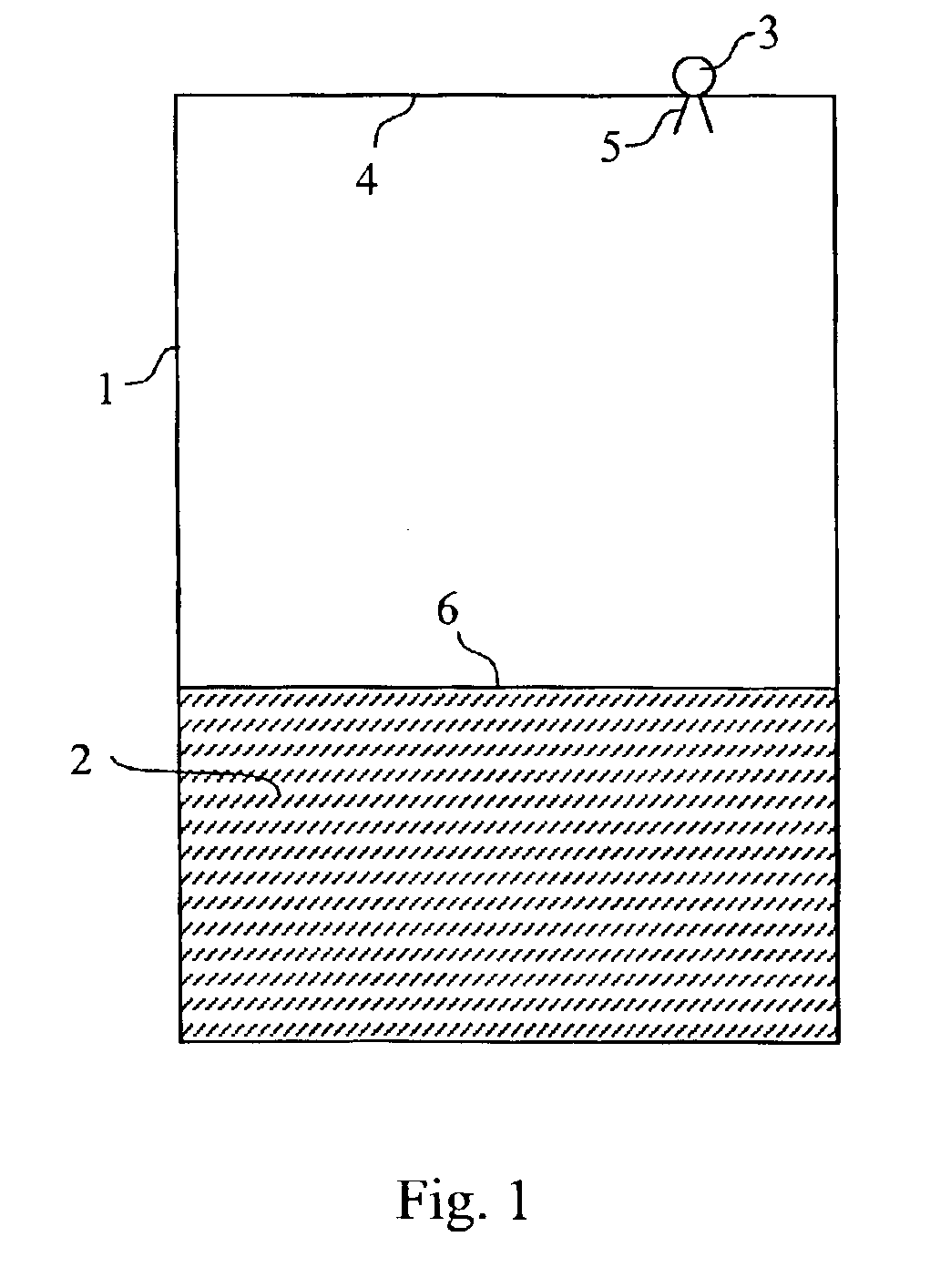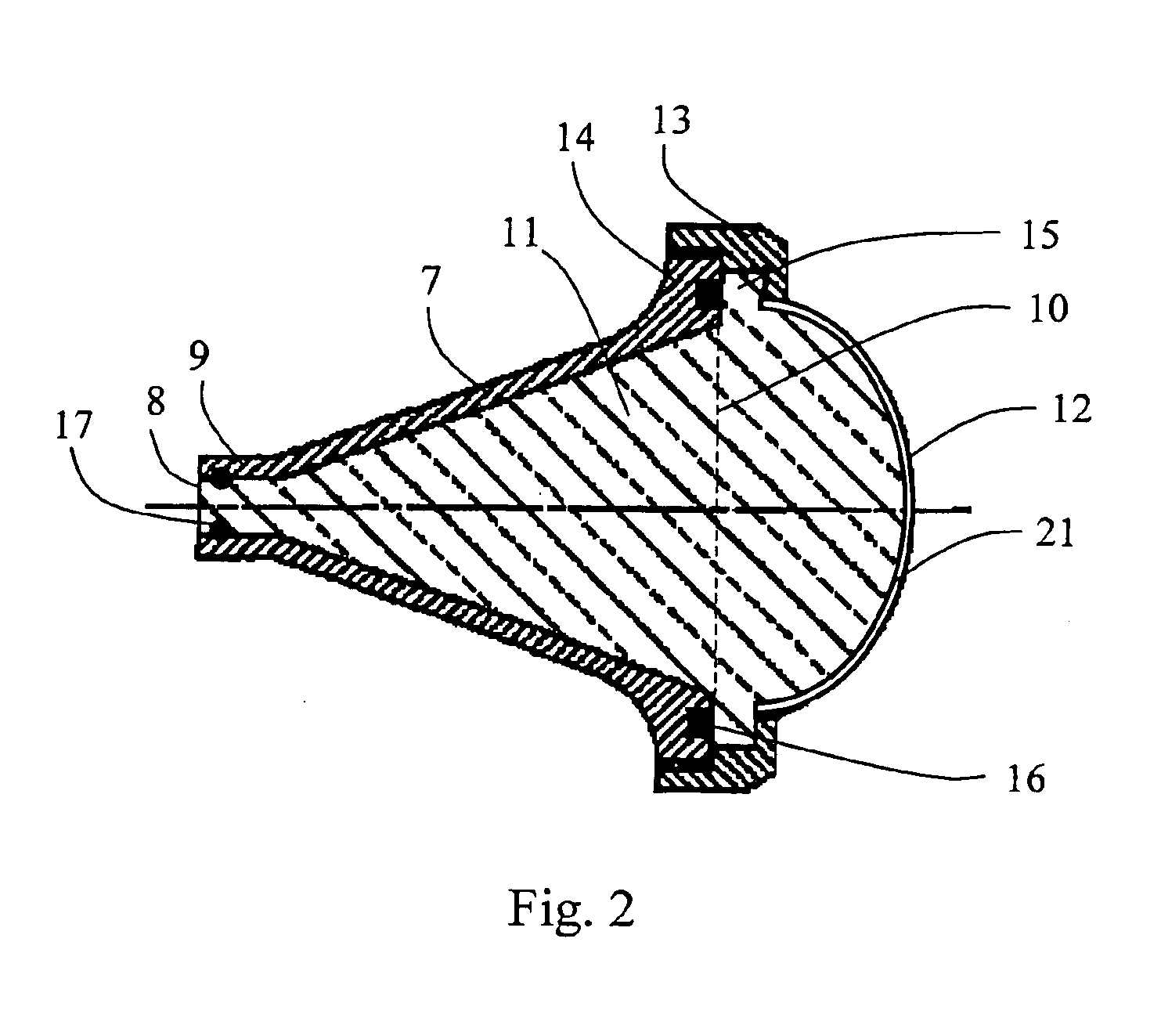Horn antenna
a horn antenna and antenna technology, applied in antennas, engine lubrication, liquid/fluent solid measurement, etc., can solve the problems of increased difficulty in condensation and soiling, increased difficulty in dampening and reflection of microwaves, and worsening of antenna gain and the level of side lobes
- Summary
- Abstract
- Description
- Claims
- Application Information
AI Technical Summary
Benefits of technology
Problems solved by technology
Method used
Image
Examples
first embodiment
FIG. 2 Shows a section through a horn antenna in accordance with the present invention.
second embodiment
FIG. 3 Shows a section through a horn antenna in accordance with the present invention.
third embodiment
FIG. 4 Shows a section through a horn antenna in accordance with the present invention.
DESCRIPTION OF EMBODIMENTS
An example of an embodiment will be given with reference to the attached drawings.
The principle of a radar level gauge is shown in FIG. 1. A tank 1 is used for storing a medium 2. The medium can be a fluid, such as oil, refined products and gas in the liquid state, or a particulate material, i.e. a pulverized solid state substance. A radar 3 is arranged at the roof 4 of the tank 1, wherefrom a microwave beam is transmitted from the radar via an antenna 5 at the inside of the tank. The emitted beam is reflected from the surface 6 of the medium and received by the antenna 5. Through a comparison and evaluation of the time delay between the transmitted signal and the reflected signal, in an evaluation and control unit, a determination of the surface 6 level of the medium can be made using known procedures.
FIG. 2 shows a first embodiment of the horn antenna in accordance with...
PUM
 Login to View More
Login to View More Abstract
Description
Claims
Application Information
 Login to View More
Login to View More - R&D
- Intellectual Property
- Life Sciences
- Materials
- Tech Scout
- Unparalleled Data Quality
- Higher Quality Content
- 60% Fewer Hallucinations
Browse by: Latest US Patents, China's latest patents, Technical Efficacy Thesaurus, Application Domain, Technology Topic, Popular Technical Reports.
© 2025 PatSnap. All rights reserved.Legal|Privacy policy|Modern Slavery Act Transparency Statement|Sitemap|About US| Contact US: help@patsnap.com



